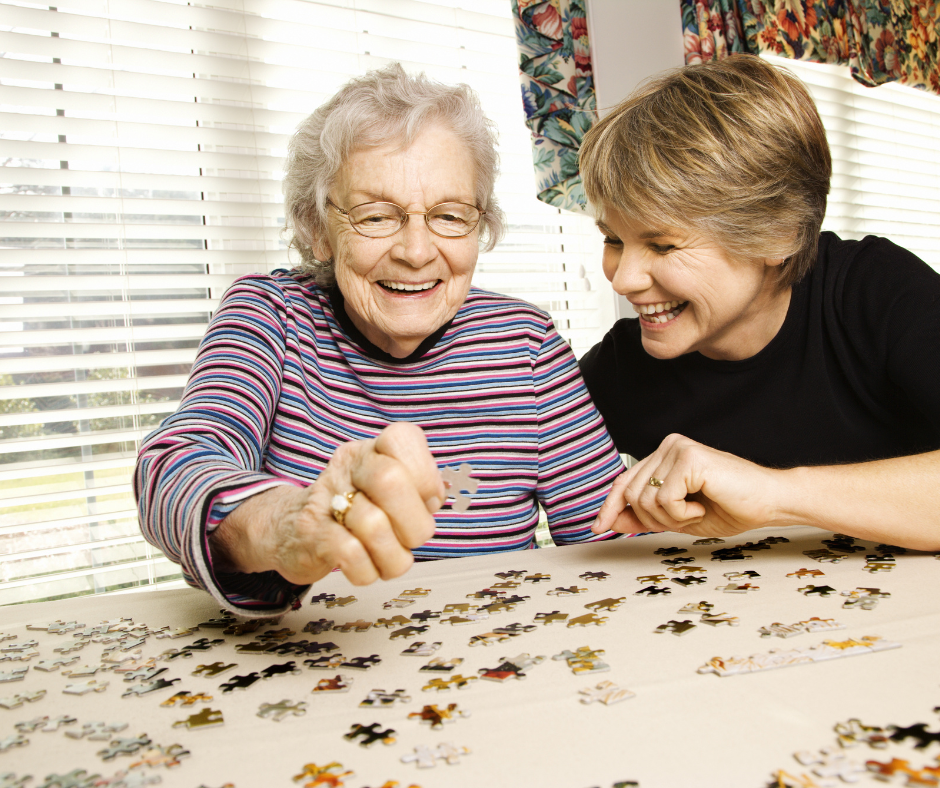As our loved ones age, maintaining cognitive health becomes increasingly important. Just as physical exercise strengthens the body, mental exercises can help keep the brain sharp. For those receiving in-home care, incorporating memory care exercises into daily routines can provide significant benefits, enhancing overall well-being and quality of life. At Caring Christians Private Duty, we understand the value of mental stimulation in promoting a healthy, active mind. Here are some effective memory care exercises to help your elderly loved ones stay mentally engaged and retain their cognitive abilities.
1. Word Games and Puzzles
Word games such as crosswords, word searches, and Scrabble can provide excellent mental workouts. These activities challenge the brain to think critically and recall vocabulary, promoting cognitive flexibility and memory retention. Puzzles like Sudoku or jigsaw puzzles are also beneficial, as they require concentration and problem-solving skills, helping to keep the mind sharp and engaged.2. Memory Matching Games
Memory matching games, often associated with children, can be equally effective for seniors. These games involve matching pairs of cards with similar images or words, requiring attention to detail and short-term memory recall. Regular practice can help improve focus, concentration, and memory retention, making them a fun and effective exercise for elderly loved ones.3. Storytelling and Reminiscence
Encouraging elderly loved ones to share stories from their past can be a powerful memory exercise. Reminiscence therapy, which involves recalling and discussing past experiences, helps stimulate long-term memory and emotional connections. This exercise can also provide a sense of accomplishment and joy as they relive happy moments, boosting their mood and cognitive health.4. Learning New Skills or Hobbies
Learning something new, such as a hobby, craft, or even a new language, can be a great way to stimulate the brain. Engaging in new activities challenges the brain to form new neural connections, enhancing cognitive flexibility and preventing memory decline. Whether it’s knitting, painting, or gardening, finding a new hobby can provide both mental stimulation and a sense of purpose.5. Physical Exercise with a Cognitive Twist
Physical activities, such as dancing or walking, can be combined with cognitive tasks to enhance brain function. For example, practicing dance steps or following an exercise routine requires both physical coordination and memory. Even simple activities like a walk around the neighborhood while recalling the names of flowers or landmarks can provide cognitive stimulation alongside physical benefits.6. Music and Singing
Listening to music, singing songs, or playing musical instruments can have a positive impact on memory and cognitive health. Music stimulates multiple areas of the brain, enhancing mood, memory recall, and cognitive function. Singing along to favorite songs or learning to play simple instruments like a keyboard can provide joy and mental stimulation.7. Engaging in Social Activities
Social interaction is a critical component of cognitive health. Encouraging elderly loved ones to engage in conversations, join clubs, or participate in group activities can stimulate the brain and improve memory retention. Whether it’s a game of cards, a book club, or a social gathering, regular social engagement helps keep the mind active and sharp.Conclusion
Incorporating memory care exercises into the daily routine of elderly loved ones can help maintain cognitive health, enhance memory, and improve overall quality of life. At Caring Christians Private Duty, we believe in providing comprehensive care that addresses both the physical and mental needs of our clients. By integrating these memory exercises into in-home care, we can help your loved ones stay mentally engaged, ensuring they enjoy a full, active, and rewarding life. Remember, it’s never too late to start; the journey to a sharper mind begins with small, daily steps.For more information on our in-home caregiving services and how we can support your loved ones in maintaining cognitive health in St. Louis, contact us today!


